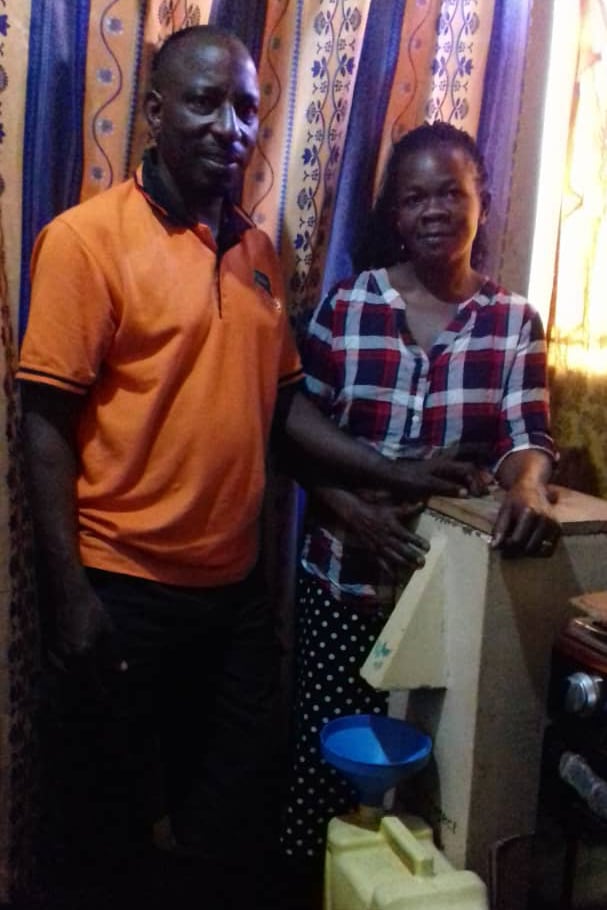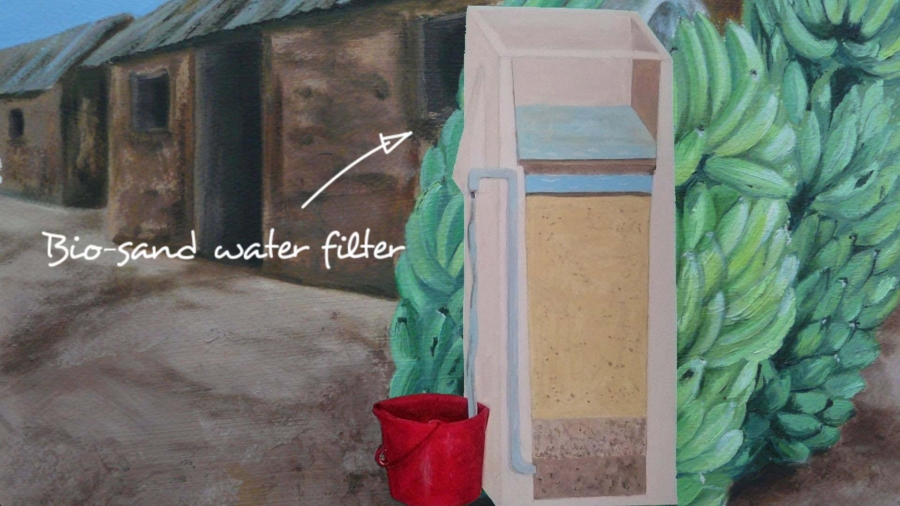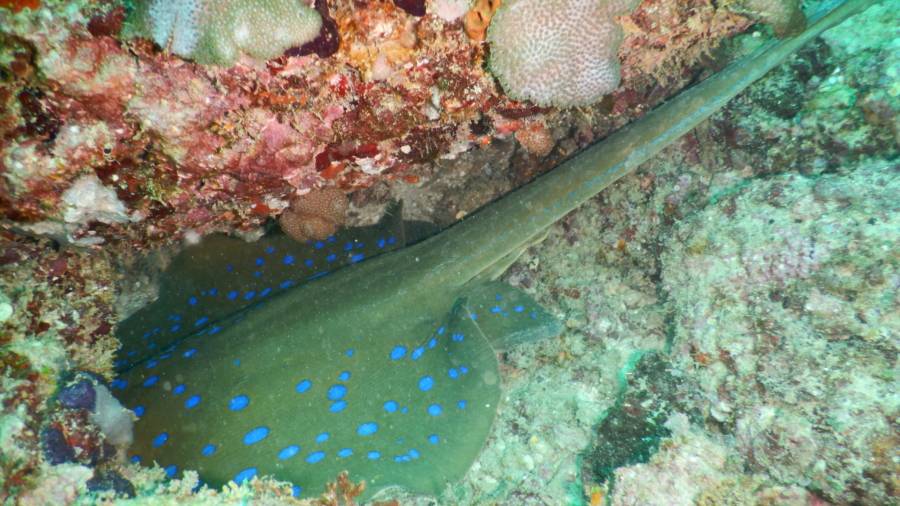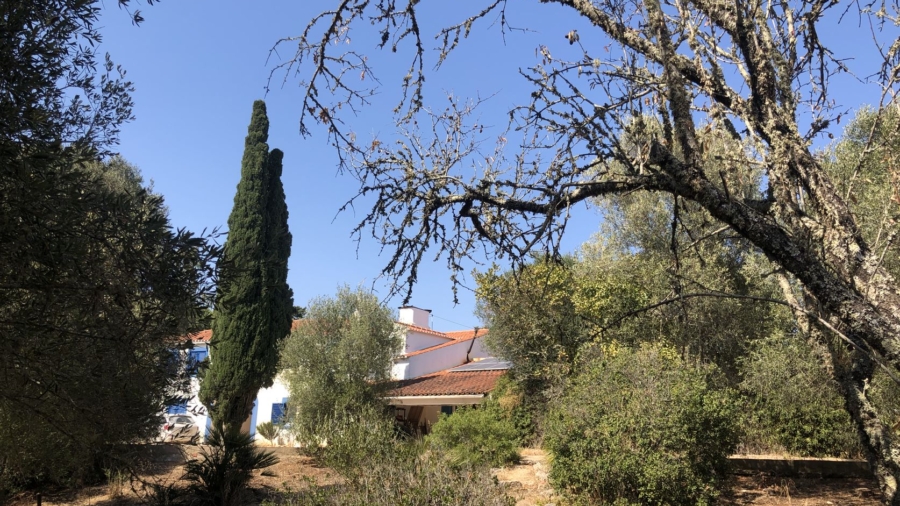Over the last 14 years, A Rocha Uganda has constructed over 2,700 bio-sand water filters and Pastor Freddie Musisi received one of the very first! Since 2008, it has filtered over 100,000 litres of clean drinking water for his family, neighbours and church members. ‘We never get diarrhoea or any other related sickness because we drink and use clean filtered water from our bio-sand filter,’ says Freddie. ‘We no longer need to buy bottled water again because even when travelling we pack our own water in our reusable bottles.’

In 2016, A Rocha Uganda replaced the sand in Freddie’s filter so that it will continue to provide clean drinking water for his family and church for another eight years.
Through Gifts with a Difference you can purchase a bio-sand filter so that others like Freddie and Annet can have better health, improved access to education, more money to spend on food and a healthier environment too!


